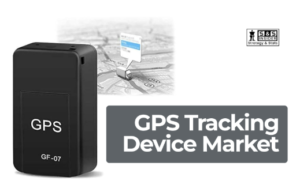AI and Self-Help? This Thought Leader Tests the Limits of Authorship in a Rapid-Fire Experiment

The self-help industry, valued at $10.5 billion as of 2020, is one of the most competitive and crowded nonfiction categories on the market. With thousands of new titles released each year, promising everything from inner peace to entrepreneurial breakthroughs, it’s increasingly difficult for new authors to cut through the noise.
Shane Tepper, a creative strategist and AI expert, decided to test a bold hypothesis: Could a deeply personal, authentic self-help book be co-written with artificial intelligence? And more importantly, would it resonate?
Tepper’s project wasn’t just about efficiency, though the results are striking. He took the seed of an idea and developed a full book in less than one week, leveraging AI as a writing partner. This wasn’t a case of pushing a button and publishing a chatbot’s draft. Tepper trained AI agents on samples of his own writing, enabling them to learn his voice, syntax, and tone.
“I had AI agents ingest several samples of my own natural writing so they could approximate my style, voice, and cadence. I used an iterative process to meticulously write and edit the copy chapter by chapter and infuse it with additional touches of my tone and personal anecdotes from my life and career. Each chapter contains heavy, actual-person edits made directly in the text,” says Tepper.
The result is something that sits at the intersection of art and algorithm, creative nonfiction built from collaboration between a human author and a machine. While much of the public conversation around AI in publishing has revolved around ghostwritten content, copyright concerns, and depersonalization, Tepper’s approach is deliberately transparent. For him, the process was as important as the product.
“The book itself was an experiment in strategic openness. I had to say ‘yes’ to trying an entirely new creative process, partnering with technology in ways that challenged my ideas about authorship and creativity,” he says.
By working with AI in this way, Tepper hoped to answer a larger question: Can machine-assisted creativity still produce something that feels real to readers? In a world where AI-generated content is growing in volume and visibility, many creatives fear a loss of authenticity. Tepper, however, isn’t rushing to that conclusion.
Thus, Tepper’s project, Dwelling in a Place of Yes: The Surprising Psychology Behind Fear, Opportunity, and Smarter Choices (2025), was born.
“It’s a remarkable position to be in, having started this project as a skeptical experiment meant to explore the limitations of AI, only to find myself genuinely impressed by what we created together and convinced of its potential value in this sphere.”
This isn’t the first time AI has been used in the publishing world, but Tepper’s approach stands out for its transparency and self-awareness. While some authors use AI in secret to pump out books faster, Tepper’s method was openly collaborative and purpose-driven.
As debates over authorship and intellectual property continue to heat up, especially in the face of generative AI, projects like this may point toward a middle path. Rather than seeing AI as a threat to creativity, Tepper’s work suggests it can be a partner in it. But that partnership only works when authors remain involved, intentional, and clear about their goals.
The question now is how readers will respond. Will they embrace a self-help book built with the help of algorithms? Or will there be hesitation around its origins?
Either way, one thing is clear: the boundaries of authorship are shifting. And for creators like Tepper, the best way to navigate the change is not to resist, but to experiment, with openness, curiosity, and control.
About Shane Tepper
Shane H. Tepper is a creative director, content strategist, and early leader in the emerging field of generative engine optimization (GEO). He helps brands improve visibility, accuracy, and narrative control across AI-native platforms like ChatGPT, Perplexity, and Gemini.
With more than 15 years of experience spanning film, advertising, and B2B technology, Tepper operates at the intersection of storytelling and artificial intelligence. He builds content systems designed to be cited by the very models shaping how people search, compare, and make decisions in today’s AI-driven world.
His recent work includes authoring a foundational white paper on GEO, leading AI discoverability audits, and designing structured content frameworks optimized for machine ingestion and real-world performance. He advises organizations on GEO strategy, AI-native content development, scalable content operations, and brand positioning for conversational interfaces.
Beyond client work, Tepper writes and speaks on AI’s broader implications for work, identity, and economic relevance—exploring what we gain, what we risk, and how we adapt when machines can think. He is also the author of Dwelling in a Place of Yes: The Surprising Psychology Behind Fear, Opportunity, and Smarter Choices (2025), a book that examines decision-making in uncertain times and reflects on his evolving work in content and consulting.








